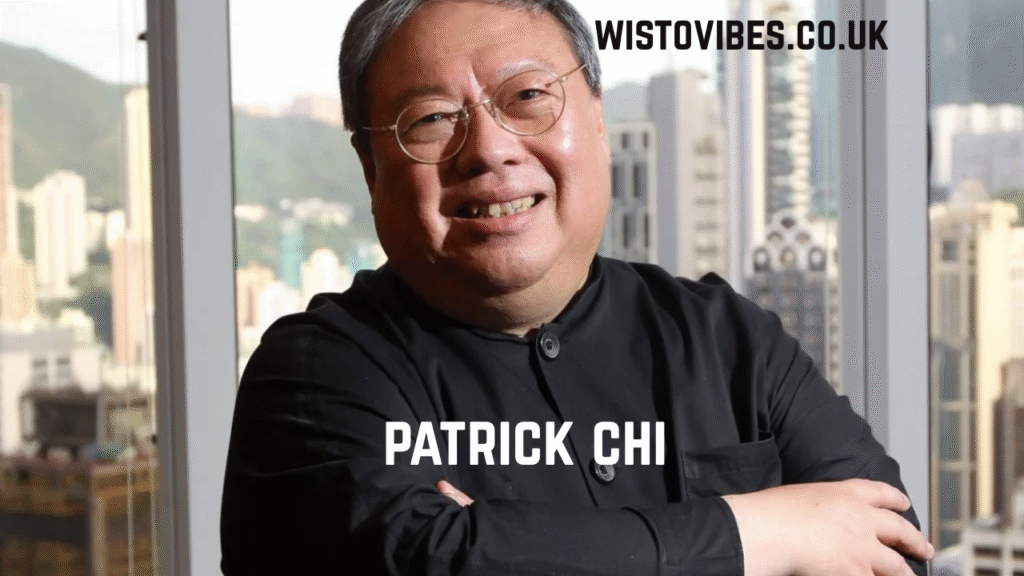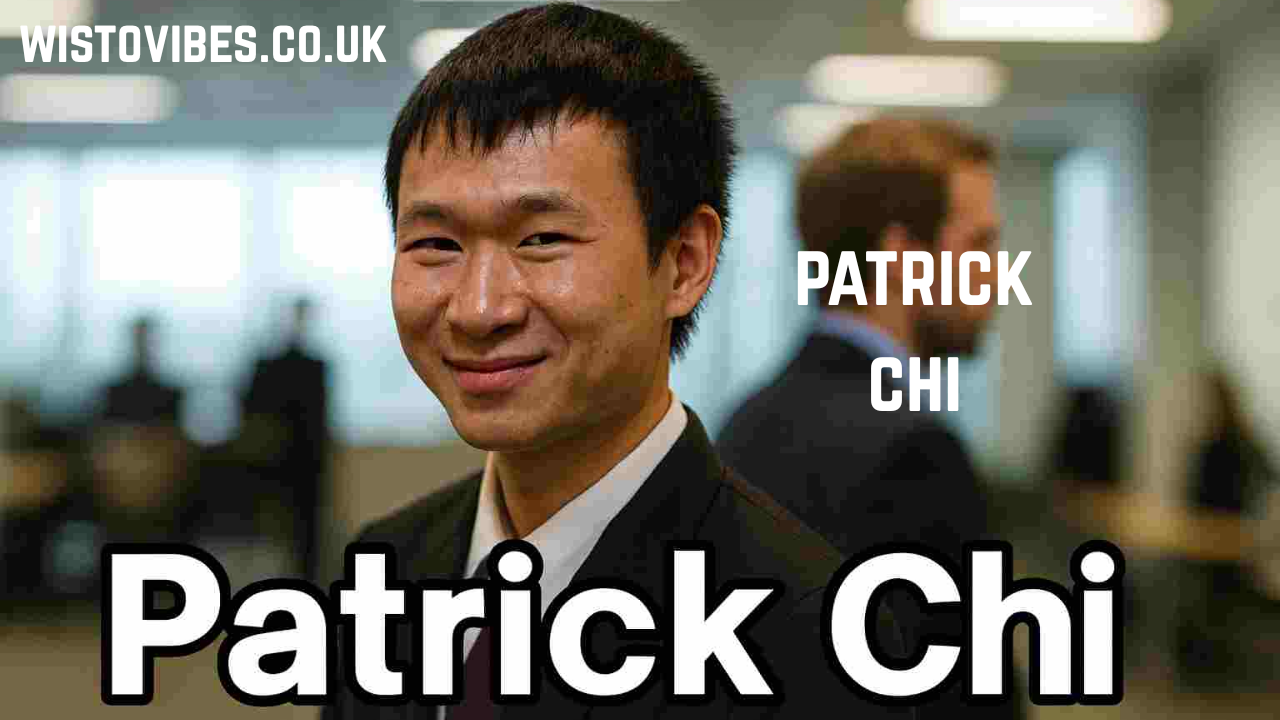Patrick Chi story begins with an intense dedication to learning and intellectual growth. From a young age, he demonstrated a passion for mathematics, scientific inquiry, and analytical thinking. In high school, he earned distinctions and recognition for his academic work, fostering a foundation that would later feed into his professional path. At Niskayuna High School, he not only performed well but also earned awards like the Principal’s Legacy Award, signaling his leadership and scholastic excellence. Over those formative years, Patrick Chi developed habits of disciplined study, curiosity, and perseverance that would later prove invaluable. His early research pursuits—such as his project on using power dissipation to classify tropical cyclones—show how even in secondary school, Patrick Chi was stretching beyond standard classroom problems into original, data-driven inquiry.
When it came time for college, Patrick Chi chose to major in Applied Mathematics at Columbia University. There, he joined the cohort of students dedicated to blending mathematical theory with real-world applications. His academic performance was exemplary, earning him honors like the C. Prescott Davis Scholar recognition. Through coursework, research assignments, and collaborations, Patrick Chi sharpened his command of statistical modeling, differential equations, probability, and computational methods. This strong quantitative base would serve as the backbone for his career in finance, trading, and data-driven decision making.
Internships, Early Roles, and Exposure to Research

While Patrick Chi was still a student, he sought out experiences that would connect theory to practice. In 2016, he joined Reach Advisors as a research intern, working on large-scale datasets to examine urban growth and socioeconomic trends. That work introduced him to handling messy real-world data, interpreting trends, and deriving policy or strategic insights. In 2017, he secured a research internship at Columbia University, where he used programming (e.g. Python) to analyze weather forecasts and compare models across continents—a niche but rigorous domain requiring both domain knowledge and coding skill.
Simultaneously, Patrick contributed to education via a role as grader and teaching assistant at Art of Problem Solving. He helped students across levels of mathematics, providing feedback, guiding problem-solving approaches, and nurturing analytical thinking. These stints in research and teaching were more than side projects—they broadened his thinking, gave him communication skills, and embedded in him the habit of learning by doing.
These early roles illustrate how Patrick Chi did not simply stay confined to textbooks. He ventured into experiment, programming, mentoring, and real data challenges. That interplay of theory and practice became a key theme in his later career.
Transition to Quantitative Trading and Algorithmic Markets
With the academic foundation and research exposure in place, Patrick Chi began exploring finance and trading. One of his first steps was working at Blackmar Capital LLC (2017–2018) as a quantitative trader. There, he applied algorithmic market-making strategies to trade digital assets across exchanges, and participated in expanding the firm’s operations and improving trading code and systems. This early immersion in algorithmic trading introduced him to market microstructure, latency, risk management, and automated systems in live financial settings.
In 2018, he secured a prestigious internship at Optiver, where he studied options theory, real-time simulation trading, and volatility modeling. This pushed him deeper into derivatives, strategy development, and the mathematical modeling necessary for high-speed trading. The following year, in 2019, he interned at Susquehanna International Group (SIG), another leading prop-trading firm. There, he honed skills in advanced trading strategies, pricing, risk hedging, and performance evaluation. Through these roles, Patrick Chi built a robust toolkit: coding for trading, statistical analysis, strategy testing, and navigating real-world market conditions.
Joining Citadel Securities: Rise in the World of High-Finance

In August 2020, Patrick Chi began his full-time role as a Trader at Citadel Securities in New York, a milestone that marked his entry into the elite tier of financial professionals. Citadel Securities is widely recognized as one of the most influential market-making and trading firms in the world. At such firms, performance demands are high, models must be precise, and the margin for error is small.
At Citadel Securities, Patrick Chi has been involved in trading American Depositary Receipts (ADRs) and international equities. The ADR space is complex because it involves cross-border flows, regulatory constraints, currency risk, and information asymmetries. That setting calls for deep understanding of global markets, arbitrage opportunities, and coordination with quantitative researchers and engineers. Patrick’s day in that environment spans market monitoring, strategy execution, system optimization, and data-driven feedback loops. His role is not only tactical execution but also refining algorithmic systems, adjusting strategies in response to regime changes, and contributing to the firm’s broader objectives in liquidity provision.
Patrick’s ascent at Citadel reflects both technical competence and adaptability. He works closely with quantitative researchers, software engineers, and fellow traders. He participates in shaping algorithmic logic, assessing risk parameters, and iterating models as market conditions evolve. His education, early research ties, and internship experiences come together in this high-stakes trading environment.
Core Skills and Professional Strengths of Patrick Chi
A few recurring themes stand out when examining what makes Patrick Chi successful:
- Quantitative & Analytical Rigor
His foundation in applied mathematics equips him to model markets, estimate risk, detect anomalies, and derive statistical inference. He can turn data into insight and strategy. - Programming & Algorithmic Fluency
His work in intern and early roles demanded proficiency in Python and other coding tools to test strategies, automate decision-making, and analyze large datasets in real time. - Cross-Domain Experience
By working with weather models, urban growth data, academic research, and then financial markets, he cultivated flexibility in thinking and adaptability across domains. - Communication & Mentorship
His time as a grader and teaching assistant sharpened his ability to explain complex topics, receive feedback, and mentor others. That helps in interdisciplinary teams and strategy reviews. - Global/International Market Acumen
His involvement with ADRs and international equities shows that he grasps regulatory regimes, cross-border flows, foreign exchange effects, and geopolitical influences. - Continuous Learning & Iteration
His trajectory implies a mindset of ongoing improvement: from school research to internships to trading. He iterates, refines, and adapts strategies as environments shift.
These strengths reinforce one another—quantitative insight without execution ability would be hollow, just as execution without analytical depth would lack robustness.
Challenges Risks and the Nature of the Industry

No career in quantitative trading is without challenges, and Patrick Chi is no exception. Some of the inherent pressures and risks include:
- Market Volatility & Regime Shifts: Sudden changes in macro events, geopolitical shocks, liquidity crunches, or regulatory surprises can render models ineffective. Traders must adapt quickly.
- Technology & Infrastructure Risk: High-frequency and algorithmic systems are sensitive to latency, bugs, network outages, and subtle implementation errors. Systems must be robust.
- Model Overfitting / Data Bias: There is always a danger of overfitting strategies to historical data. What worked in past regimes may fail in future ones.
- Competition & Talent Intensity: The field attracts top mathematicians, coders, and strategists. Staying ahead means constantly learning new techniques, exploring new data sources, and innovating.
- Psychological Stress & Decision Fatigue: Traders make split-second decisions under uncertainty, manage losses, and adapt strategies in real time. Emotional resilience is crucial.
Through all of this, Patrick Chi needs to balance risk and reward, remain humble in assumptions, and constantly validate judgments with rigorous testing. His background suggests he is well prepared to face such challenges.
Vision, Influence, and Contribution The Broader Impact of Patrick Chi
Beyond executing trades, Patrick Chi also embodies a broader potential impact in finance, education, and mentorship. Because his path spans research, teaching, trading, and rigorous analytics, he is positioned to influence how new quantitative traders or students approach the profession. He could, for instance:
- Serve as a mentor or role model for students aspiring to quantitative finance.
- Contribute to open discussions, articles, or talks on bridging research and markets.
- Help refine the culture of risk management and humility within high-stakes trading firms.
- Push for innovations in algorithmic methods, machine learning, or alternative data usage.
In the long run, individuals like Patrick foster a kind of generational knowledge transfer: translating what works today into the tools, processes, and mindsets that the next wave of traders will carry forward.
His success also demonstrates that the path from research and academia into sophisticated trading roles is viable—if one combines technical skill, interdisciplinary exposure, rigor, and adaptability. For aspiring professionals, Patrick Chi’s journey offers a blueprint: build depth, gain risk-aware experience, learn to communicate, and never stop iterating.
Personal Side Philosophy and Future Aspirations
While most public focus rests on Patrick Chi’s professional trajectory, glimpses of his personal side and philosophy also help round the picture. He values learning, curiosity, and combining theory with practice. His experience as a mentor or grader suggests he finds joy in helping others understand complex ideas. He also seems motivated by problems—whether atmospheric modeling, urban data, or market anomalies.
Looking ahead, Patrick may aim to deepen leadership responsibilities, take on strategic projects within trading firms, or push frontier areas like machine learning-based trading, novel data sources, or risk systems. He also may expand his influence via writing, seminars, or mentorship platforms, helping new generations of quantitative professionals.
His vision likely remains anchored in synthesis: bridging rigorous mathematics, empirical data, algorithmic systems, and real-world markets to produce robust, adaptive strategies that thrive under uncertainty.
Conclusion
The story of Patrick Chi is not merely one of academic success or trading accomplishment. It is the narrative of a person who built bridges across domains: from mathematics to research, from programming to mentoring, from internships to professional roles in one of the most demanding corners of finance. His trajectory underscores how foundational skills, curiosity, discipline, and iterative growth can lead to roles of genuine impact and responsibility. In today’s competitive, fast-moving markets, Patrick Chi stands as an exemplar of how quantitative talent, when cultivated and applied wisely, can shape not only personal success but also contribute to evolving industry practices.
FAQs (Frequently Asked Questions) about Patrick Chi
Q1: Who is Patrick Chi?
Patrick Chi is a quantitative trader at Citadel Securities, known for his strong academic background in applied mathematics and experience across research, algorithmic trading, and internships at top firms.
Q2: What educational background does Patrick Chi have?
He studied Applied Mathematics at Columbia University, and during that time, he was honored as a C. Prescott Davis Scholar and engaged in independent research projects in science and data analysis.
Q3: What kind of trading does Patrick Chi do?
He primarily works with American Depositary Receipts (ADRs) and international equities, involving cross-border dynamics, algorithmic execution, market making, and risk management.
Q4: What are Patrick Chi’s key strengths?
His strengths include quantitative modeling, programming and algorithmic fluency, interdisciplinary experience, communication and mentorship ability, and sensitivity to risk and volatility.
Q5: What challenges does a person in Patrick Chi’s role face?
He must navigate market volatility, model fragility, technology and infrastructure risk, competition in talent, psychological stress, and adaptation to changing regimes or data environments.
Q6: How might Patrick Chi contribute beyond trading?
He may mentor aspiring quantitative professionals, give talks or write about bridging research and trading, innovate in algorithmic methods, and help define best practices in the industry.
Q7: What lessons can aspiring quants learn from Patrick Chi?
Start with strong quantitative foundations, seek real-world research or data roles early, pursue internships in trading, practice coding and strategy development, communicate clearly, and always be open to iteration and learning.
Read More: The Inspiring Journey and Lasting Legacy of Victoria Graham




